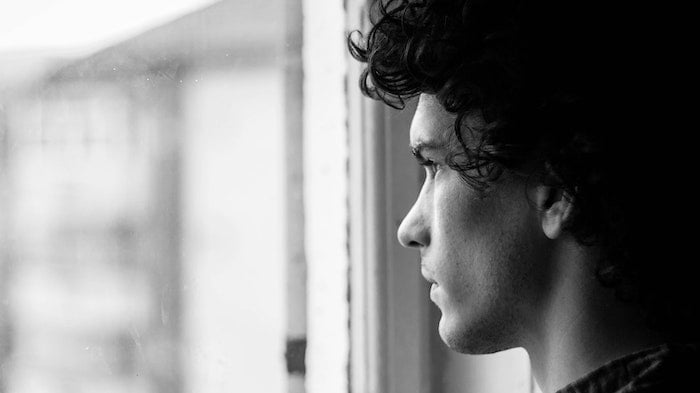The first step in any recovery journey is to admit that you need help. However, we know that doing this is no easy feat, so we work hard to ensure that your bravery pays off.
Here at OK Rehab, it is our job to make sure you are in the best possible hands for the duration of your recovery journey, and that you receive the right treatment specifically for you. So, we work with multiple rehabilitation centres and outpatient clinics across the country to do just that.
We assess all clients early on in the admissions process and work quickly and efficiently to match their needs with those of their perfect treatment facility and methods. For you, this could be a residential programme in a drug and alcohol rehab in Pudsey.
This way, you only ever receive treatment that is proven to be beneficial to you and are placed in a treatment centre that works best with your needs and personal preferences – saving your precious time, money, and effort.
To find out more about the possibilities of your recovery journey, get in contact with us today at 0800 326 5559, or fill out our online form.
Signs and symptoms of a drug or alcohol addiction

It can be incredibly difficult to realise you are in fact battling a drug or alcohol addiction. Many times individuals will believe the symptoms they are experiencing are simple side effects of recreational use of these substances and will deny that they need professional help for an addiction.
The signs of an addiction can show up in many different ways, which is another factor that makes it trickier for people to recognise them in their own lives. Often people will claim they are not dealing with an addiction because they have had no or very little physical symptoms, but this is not the only way the signs can make an appearance.
Symptoms of a substance or behavioural addiction can show up physically (the most commonly known symptoms are usually the physical ones), but they can also appear in your social life, your work life, and your mental health.
If you are still unsure of your own situation and what it is you are experiencing, ask yourself the following questions:
Social and work-life symptoms
- Am I avoiding responsibilities in my work or social life that I used to execute with no problems?
- Am I avoiding social situations that I would usually enjoy, such as work gatherings or parties?
- Am I lying to loved ones about my use of the substance?
- Am I lashing out at loved ones when they express concern over my use of the substance?
- Do I have a secret stash of the substance hidden somewhere?
- Has my substance use interfered with any personal or work relationships?
- Has my substance use impacted my ability to work to the standard I am accustomed to?
Physical symptoms
- Has my physical appearance changed drastically?
- Have I unexpectedly lost weight recently?
- Am I struggling to sleep, or keep a regular sleeping pattern?
- Has my tolerance for the substance I use increased since my first use?
- Does my tolerance for the substance continue to increase with each use?
- Do I continually up the dosage of the substance so I can experience the same desired effect?
- Do I experience symptoms of withdrawal when I have not used the substance for a short period of time?
Psychological symptoms
- Am I experiencing heightened symptoms of an existing mental health problem, such as depression or anxiety?
- Am I more on-edge, angrier and easily frustrated than usual?
- Is the substance I use all I can think about sometimes?
- Do I find it difficult to think of anything else sometimes?
- Do I struggle to make it through a day without using the substance?
- Do I turn to the substance for comfort, escapism, or to help cope/forget about difficult feelings?
If you answered yes to even just one of the above questions, we recommend reaching out to us here at OK Rehab right away. Even if you are not experiencing a drug or alcohol addiction, you could be on your way to one, and we can offer support, guidance and information on what your next steps should be.
If you are indeed battling a drug or alcohol addiction, then get in touch with us as soon as you can.
The earlier we catch an addiction, the easier it usually is to treat, and the higher the chances there are of reaching a successful and long-lasting recovery.
How expensive is a drug and alcohol rehab in Pudsey?

It is unfortunately very common these days to risk going without professional addiction treatment, in fear of the expected high price tag that is often associated with rehab.
We understand that costs are a huge factor when deciding your next steps, but we believe it shouldn’t impact the quality of care you get. Everybody deserves treatment – no matter what.
This is why if you have any financial concerns or burdens that may be stopping you from seeking help, we implore you to mention this to a member of our team when you enquire. We will strive to work around any budget or fluctuating finances, and get you on the right path to recovery.
How long will I be in a drug and alcohol rehab in Pudsey?
The average time spent on a residential rehab programme in a drug and alcohol rehab in Pudsey is around 28 days.
Of course, this may differ for everyone, as some will need much longer to complete treatment than others. There is no shame if you are one of these people, and require more time in rehab – your recovery is still very much possible.
The length of time you spend in rehab will be partly decided by your behaviour and mood towards treatment (if you are pessimistic or unwilling to take part then your recovery will be decidedly longer than that of someone who is eager to improve), but it can just as easily be determined by factors that are out of your control.
Things such as the substance you have used, the length of time you have been using, the method of your abuse, the general severity of your addiction and whether or not your family has a history of addiction can all contribute to how long you will need in rehabilitation.
Try not to focus on the ‘finish line’ of your treatment, but rather on the journey as a whole, and you may notice a shift in your attitude towards recovery.





